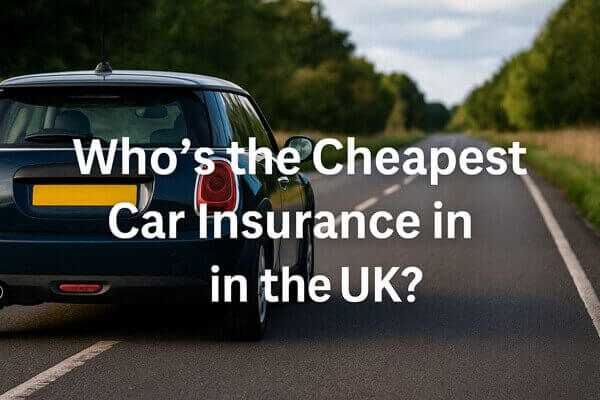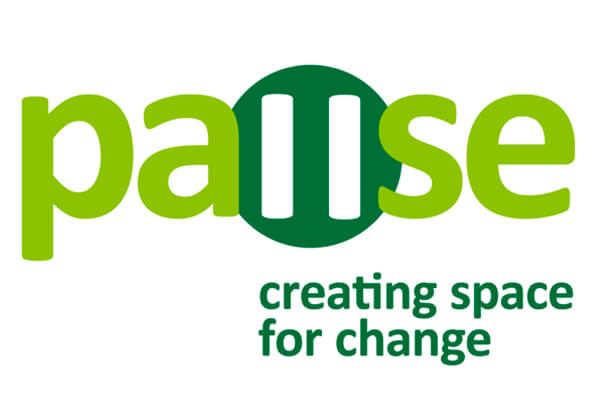Who is the Cheapest Car Insurance in the UK?
Finding the cheapest car insurance in the UK can feel like chasing a moving target. Prices shift every quarter, insurers change their risk models, and what’s cheapest for one driver might be expensive for another. In 2025, the average premium has fallen slightly after record highs in 2024, but the market remains volatile. Using verified data from the Association of British Insurers (ABI), the Financial Conduct Authority (FCA) and trusted consumer sources, this guide breaks down how car insurance costs are set, which brands deliver value, and when to buy for the best price.
Compare Cheap Car Insurance
Our team of discount hunters at My Favourite Voucher Codes also highlight practical ways to save — with every comparison you make helping us donate 20% of our profits to charity each month. When you use our car insurance comparison widget we can save you up to £518 of your renewal premium. To get your competitive insurance quote, just enter your registration number in the box below and let us see how much we can save you:
Compare Cheap Car Insurance
Save up to £518* by comparing quotes from 130+ UK insurers. Start with your registration number and see live prices with our partner Quotezone.
-
Compare 130+ providers
-
Potential savings up to £518*
-
Quick, free & no obligation





Disclaimer: We act as an introducer to Quotezone.co.uk. Quotes are provided by Quotezone from their panel of UK insurers. We do not sell or manage insurance policies. *Savings based on partner data; individual results will vary.
Why There’s No Single “Cheapest” Insurer
Every insurer prices risk differently. A 22-year-old student in Manchester with a small hatchback will never receive the same quote as a 45-year-old commuter in rural Devon, even with identical cover. Location, age, vehicle type, mileage, occupation, and driving history are all key inputs. The FCA’s pricing practices report confirmed that two drivers on the same street can see differences of more than 40% due to micro-rating. Insurers use unique algorithms, so comparison results vary widely.
The ABI adds that older motorists generally benefit from lower risk profiles, while younger or newly licensed drivers pay more due to limited experience. Telematics or “black box” policies can help, rewarding safe driving with premium reductions over time. There’s also the issue of renewal timing — buying at the wrong moment can add hundreds of pounds to a policy. The takeaway: there isn’t one universal cheapest insurer, but there are consistent behaviours that produce cheaper results.
Stat to know: Buying around 23 days before renewal is consistently one of the cheapest times to purchase — leaving it to the final week can cost substantially more.

Top UK Insurers by Value and Performance in 2025
Rather than chasing the lowest headline quote, savvy drivers look at value, claims service and reliability. The latest Which? rankings and Consumer Intelligence research highlight the insurers achieving the highest customer satisfaction in 2025.
| Insurer | Strength | Customer Rating | Notable Feature |
|---|---|---|---|
| Aviva | Strong claims service | 4.6/5 | Multi-car & EV cover |
| LV= | High satisfaction for renewals | 4.5/5 | Accident forgiveness options |
| Direct Line | Consistent mid-market pricing | 4.4/5 | Now available on PCWs |
| Admiral | Competitive bundles | 4.3/5 | Multi-car discounts |
| Hastings Direct | Telematics innovation | 4.2/5 | Flexible excess choices |
| NFU Mutual | Exceptional service reputation | 4.8/5 | Rural & specialist cover |
Brands with efficient claims handling often achieve better loyalty and value, even if their premiums aren’t the absolute lowest. In short, “cheap” rarely beats “reliable” when you need to make a claim.
Cheapest Options by Driver Type
Under-25 Drivers: Young motorists face the highest premiums due to accident statistics. Telematics policies from brands like Admiral LittleBox and Hastings YouDrive can reward careful driving. Limiting annual mileage and adding an experienced named driver often helps lower costs. See MSE’s guide for practical steps.
Over-50 Drivers: Mature drivers typically benefit from strong no-claims bonuses and smaller mileage totals. Specialist over-50 insurers such as those discussed by Which? can offer competitive renewal terms for a clean record.
Drivers with Points or Convictions: Convicted-driver insurers and brokers such as those featured on Confused.com can secure tailored policies. Defensive-driving courses and telematics devices can demonstrate improved behaviour to insurers.
Electric & Hybrid Owners: EV insurance remains higher on average due to repair and parts costs, but prices are narrowing. Check EV-specific comparison tools for better rates and benefits (battery cover, charger protection).
What UK Drivers Are Paying in 2025
The ABI’s July 2025 data shows the average comprehensive premium at £562, down from £622 the previous year. While that’s good news, costs remain historically high due to expensive repairs and rising theft claims. According to the FCA’s motor claims analysis, claim sizes have climbed as modern vehicles rely on sensors and cameras that are costly to replace.
The FCA and RSM UK note that supply-chain delays and higher labour costs continue to pressure insurers. Even with falling averages, premiums remain sensitive to claim inflation. The best way to stay ahead is to shop around each renewal and adjust cover to reflect actual usage.
Stat to know: The ABI reports average comprehensive cover at £562 in Q2 2025, down from 2024’s peak but still elevated by repair and theft costs.
What Makes Car Insurance Prices Go Up or Down?
Beyond your personal details, several wider factors move prices for everyone:
- Claims inflation: More expensive repairs (labour, parts, diagnostics) push up average claim costs, which feeds into premiums.
- Vehicle technology: Advanced driver assistance systems (ADAS), sensors and EV battery systems are pricier to repair or replace.
- Supply chain and labour: Disruption and shortages raise repair times and costs, increasing claim severity.
- Theft and fraud: Surges in vehicle theft or fraudulent claims add to market-wide pricing pressure.
- Regulation: The FCA’s fair pricing rules (ban on “price walking”) changed how new vs renewal pricing works.
These drivers explain why premiums can increase even if you haven’t claimed. Watching the ABI’s quarterly updates is a smart way to time your renewal, especially when average prices dip.
Stat to know: UK premiums rose sharply through 2024 — up nearly 60% year-on-year at one point — before easing in mid-2025. Source: The Guardian.
How to Get the Cheapest Car Insurance for Your Profile
Real savings come from timing and behavioural changes rather than switching brands alone. Data from MoneySavingExpert shows that buying around 23 days before renewal can reduce costs by up to 40%. Leave it until the final week and the same quote can jump by hundreds.
- Increase your voluntary excess if affordable — it lowers risk to the insurer.
- Pay annually to avoid finance interest on monthly instalments.
- Ensure your mileage estimate is realistic; over- or under-reporting skews risk.
- Review job titles — some descriptions rate lower than others.
- Bundle cars or add a second driver to access multi-policy discounts.
These adjustments typically save more than gimmick deals or voucher codes alone — though stacking both is even better.
Hidden Fees and Policy Add-Ons to Watch Out For
Even a cheap headline premium can become expensive once add-ons and fees are included. Read the summary of cover carefully and check:
- Legal expenses: Useful for complex claims, but not essential for everyone.
- Breakdown cover: Sometimes better value as a separate policy depending on mileage/vehicle age.
- Courtesy car: Consider whether you need guaranteed replacement car vs standard courtesy car.
- Windscreen cover: Handy for motorway users; evaluate excess and limits.
- Admin/cancellation fees: Mid-term changes (address, car, drivers) can trigger charges; compare fee tables.
Only pay for what you’ll actually use. If a low premium relies on costly add-ons, a slightly higher base price from a value-focused insurer may be cheaper overall.
Tip: Add-ons can add 10–20% to a policy. If you already have breakdown or legal cover elsewhere, remove duplicates to cut costs.
Comparison Sites vs Direct Insurers vs Brokers
Most UK motorists now use comparison sites to gather quotes quickly. These sites can list over 100 brands in minutes, but they don’t include everyone. Direct Line and NFU Mutual are notable examples of insurers that historically stayed off aggregator panels, though Direct Line joined major price-comparison websites in 2024. Always double-check direct sites after comparing.
Insurance brokers remain valuable for complex cases — imported cars, young drivers with convictions, or multi-vehicle fleets. They access specialist markets and provide tailored advice that comparison tools can’t replicate. According to the FCA’s review, brokers and comparison sites operate under the same regulatory duty to deliver fair value to customers.
| Route | Advantages | Considerations |
|---|---|---|
| Comparison Sites | Quick, transparent, competitive quotes | Not all insurers listed |
| Direct Insurers | Exclusive deals, loyalty perks | Fewer quotes to compare |
| Brokers | Expert guidance for niche drivers | May charge small admin fee |
Note: Direct Line announced a move onto major price-comparison websites in 2024 — a significant change drivers should factor into their quote checks. Source: Direct Line Group.
When to Buy and Renew for the Best Price
Timing is everything. MoneySavingExpert and Confused.com both found that renewing between 21 and 26 days before the policy start date yields the best rates. Insurers interpret last-minute buyers as higher risk, so leaving it late can cost 20–30% more.
External market conditions also matter. The Guardian’s analysis shows premiums surged nearly 60% year-on-year in 2024 before easing mid-2025. Seasonality plays a part too: January and early summer renewals often see spikes as insurers adjust portfolios. Plan early, compare widely, and set renewal reminders.
Regional Price Snapshot: North vs South
Premiums also vary significantly by region due to traffic density, theft levels and claim frequency. Urban areas with more collisions and vehicle crime tend to see higher average quotes than rural or coastal locations. While exact figures move each quarter, you’ll typically find:
- Major cities (London, Manchester, Birmingham): higher average premiums due to congestion and theft risk.
- Rural regions (parts of the South West, Scotland): lower averages thanks to fewer claims and lower traffic volumes.
- University towns: mixed results — younger driver concentration may lift rates, but lower mileage can offset.
Even neighbouring postcodes can differ markedly. If you’re moving house, check quotes at the new address before you buy or renew — it can affect the price more than changing your car.
Tip: If your commute or parking situation changes (e.g., secure parking, garage access), update these details — they can reduce your premium immediately.
Market & Regulatory Trends Impacting 2025 Prices
Behind every quote sits a network of market forces. The ABI’s latest update confirmed repair and theft costs remain high despite modest premium drops. Supply-chain issues, electric-vehicle part shortages and labour inflation continue to pressure margins. Meanwhile, the FCA’s pricing reforms — banning unfair renewal price rises known as “price walking” — have reshaped competition. Insurers must now prove fair value for every product they sell.
Industry analysts at RSM UK report a slow return to profitability in 2025 as automation and AI improve claims handling. However, rising fraud and theft attempts remain a challenge. Understanding these drivers helps motorists see why prices fluctuate even when personal risk hasn’t changed.
FAQs: Cheap Car Insurance in the UK
Who offers the cheapest car insurance in the UK?
It changes constantly. The best approach is to use several comparison sites, then check direct-only insurers such as Direct Line or NFU Mutual. No single brand is cheapest for all drivers.
Does age affect how much I pay?
Yes. The ABI shows premiums typically fall with age until around 70, reflecting lower risk and driving frequency.
When is the best time to buy?
According to MoneySavingExpert, about 23 days before your renewal date. Buying earlier than this or within the final week usually costs more.
Why does my renewal go up each year?
Claims inflation, repair costs and regulatory adjustments can all raise prices. Even if you haven’t claimed, the industry’s average claim size affects everyone.
Are smaller insurers cheaper than big ones?
Sometimes. Niche or telematics-focused brands may undercut larger insurers for specific profiles, but big brands often include more extras such as courtesy cars and breakdown cover.
What is black box insurance?
Telematics uses a device or app to track driving behaviour. Safe drivers can earn discounts or cashback over time — particularly valuable for under-25s. See Which?’s explainer.
Do job title and mileage affect premiums?
Yes. Insurers classify certain occupations and mileage bands as higher risk. Being accurate — not optimistic — keeps your policy valid and fairly priced.
Is third-party only cheaper?
Not always. Comprehensive cover can actually be cheaper because riskier drivers tend to choose third-party policies, skewing data for insurers.
Why is car insurance more expensive in cities?
Higher traffic density, more collisions, and elevated theft risk push up claims frequency and cost, which leads to higher premiums in urban postcodes.
Does switching insurer affect my credit score?
Getting quotes usually uses soft checks and won’t affect your score; paying monthly involves credit, so affordability checks apply. Paying annually avoids interest and credit applications.
What happens if I cancel mid-policy?
Insurers typically refund the unused portion (less a cancellation/admin fee). If you’ve made a claim, a refund may not be due. Always check the terms and any fees before cancelling.
Can loyalty ever pay off?
Yes, but you should still compare. Some brands offer fixed-price renewals or loyalty add-ons, but others rely on inertia. The FCA’s fair-pricing rules mean renewal should be fair — not automatically cheapest.
Expert Takeaway — What We Expect for 2026
Pricing volatility looks set to ease gradually as supply chains stabilise and claims inflation moderates. Expect continued investment in AI-driven claims handling and pricing, faster repairs as more garages get EV-qualified, and ongoing regulator focus on fair value. If theft trends improve and repair costs settle, average premiums should stabilise further.
For motorists, the playbook remains the same: buy early, compare widely, and align cover to real-world usage. Drivers who manage mileage, park securely, and consider telematics (especially younger motorists) will continue to beat the average.
Conclusion & Methodology
There’s no single cheapest car insurer in the UK — only the cheapest for you. Prices depend on personal details, location, vehicle, and timing. In 2025, smart shopping means comparing widely, buying early, and choosing value over headline discounts. Verified data from the ABI, FCA, Which?, MoneySavingExpert and other trusted sources confirms that timing, cover level and behaviour matter far more than brand loyalty.
Methodology: Figures cited in this guide are based on 2025 data from the ABI’s quarterly premium releases, the FCA’s pricing reviews, and consumer research from Which?, Confused.com and MoneySavingExpert. Trends are current to Q2 2025. No insurer was directly endorsed; figures are for guidance only. Readers should always confirm quotes before purchase.
At My Favourite Voucher Codes, we combine verified insights with genuine savings tools — and each comparison you make helps us donate 20% of our profits to UK charities every month. Because saving money should do some good, too.
by Julian House – 7th October 2025
Julian House is a staff writer at My Favourite Voucher Codes specialising in consumer finance, insurance, and everyday money-saving strategies. He produces data-led guides that help UK motorists cut the cost of car insurance with smart comparison tactics, renewal-timing insights, and verified savings advice. Through his writing, Julian showcases My Favourite Voucher Codes’ pledge to donate 20% of profits to charity each month, highlighting how better budgeting and fair-value choices can create a positive social impact. His goal is to give readers the confidence to save money safely while supporting causes that matter.






